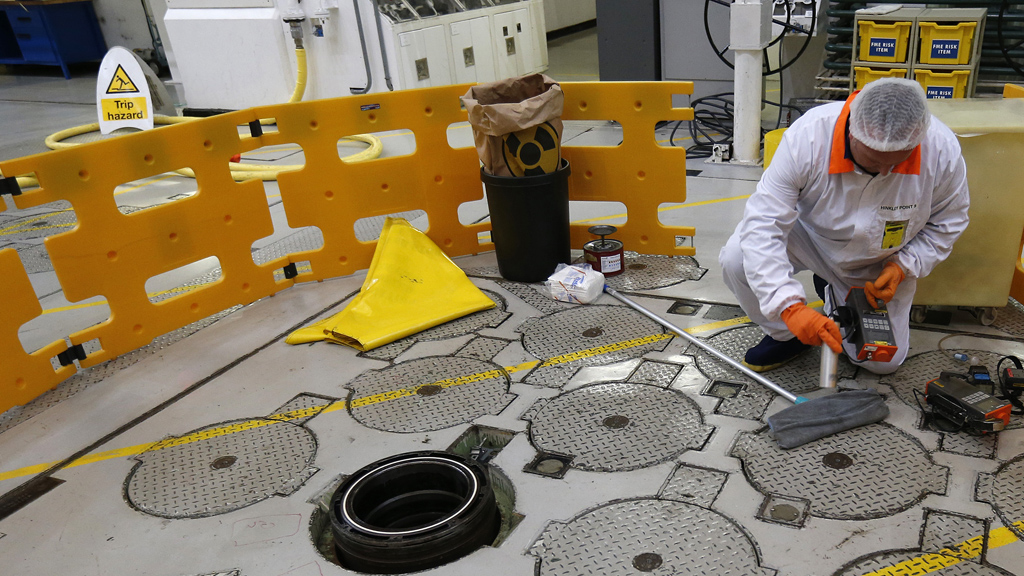Are Chinese nuclear safeguards enough for the UK?
Chinese-designed nuclear plants could be built in the UK under a deal announced by George Osborne. But is the Chinese system for regulating its nuclear industry really rigorous and incorruptible?

Chinese companies will be able to take a stake in Britain’s nuclear projects, George Osborne announced on Thursday.
During a visit to China, the chancellor said Britain and China had signed a memorandum of understanding on nuclear cooperation that also includes roles for British companies in China’s nuclear programme.
“This is an exciting development, strengthening our relationship with China in a way that will benefit both countries,” said Energy Secretary Edward Davey.
“Investment from Chinese companies in the UK electricity market is welcome, providing they can meet our stringent regulatory and safety requirements.”
Value-for-money deal
Talks are continuing between Britain and the French utility company EDF over the construction of Britain’s first new nuclear power station since 1995, at Hinkley C, in Somerset.
Read Gary Gibbon’s blog on energy policy: “a mighty saga that will be at the centre of political debate for some time to come”
a mighty saga that will be at the centre of political debate for a long time to com – See more at: http://blogs.channel4.com/gary-gibbon-on-politics/energy-perfect-storm/26820#sthash.tPqbIQjv.dpuf
a mighty saga that will be at the centre of political debate for a long time to com – See more at: http://blogs.channel4.com/gary-gibbon-on-politics/energy-perfect-storm/26820#sthash.tPqbIQjv.dpuf
Under the planned Hinckley C deal, EDF would build two reactors. The overall cost of the contract would be $14bn, although a Department for Energy and Climate Change spokesman stated: “A contract will only be offered if it is value for money, fair and affordable, in line with government policy on no public subsidy for new nuclear.”
A contract will only be offered if it is value for money, fair and affordable. DECC spokesman
The Wall Street Journal has reported that a deal had already been done, and that EDF would hold a 45-50 per cent stake in the project. Two Chinese companies, including the state-controlled China General Nuclear Power Group (CGN), would hold a combined 30-40 per cent stake, and French nuclear group Areva about 10 per cent.
Mr Osborne made Thursday’s announcement at the Taishan nuclear power station, on the coast near Hong Kong, constructed in a collaboration between EDF and CGN.
Energy ‘trilemma’
The cost of the Hinkley C project, and the prospect of Chinese involvement in Britain’s energy sector, have raised concerns about consumers being forced to subsidise energy prices and the involvement of a foreign state-owned enterprise in Britain’s nuclear power industry.
Dr Paul Toyne, director of sustainability at Balfour Beatty, a company involved in the utilities and power sector in Britain, told Channel 4 News that the UK energy industry faced three challenges – what he referred to as a “trilemma”.
The only reason these questions are being asked is that it’s from a nation that the British public has less exposure to. Dr Paul Toyne, Balfour Beatty
“One is of affordability of energy, regardless of where it’s sourced. The second issue is security of supply. And the third is sustainability – nuclear is better than oil or gas but not as good as wind-generated energy.
“The only reason questions about China are being asked is that it’s a nation that the British public has less exposure to and less understanding of – so itâ??s more of a cultural issue.
“I would be far more worried if the Chinese did not see the UK as an attractive place to invest.”
Rigorous and incorruptible?
But George Osborne’s announcement also includes the prospect of the Chinese taking a majority stake in a British nuclear plant in future, which would involve the use of Chinese technology.
Professor Gordon Mackerron, an energy economist based at Sussex University, says that could not happen before at least 2020 because of the the UK’s safety regulatory process.
There are worries about whether or not the Chinese regulatory system is rigorous and incorruptible. Prof Gordon Mackerron, energy economist
The main concern in that event, he told Channel 4 News, would be about China’s arrangements for the regulation of nuclear power.
“There are worries about whether or not the Chinese regulatory system is rigorous and incorruptible,” he said, “although the official story will be that all nuclear reactors ever approved in the UK are approved to rigorous British design.
“If it got to the point where there was a serious intention on the part of Chinese companies to sell us reactors, they would go through the same safety review process. Whether it would go well for them is a good question.
“But there are various political compromises that would allow the British government to buy time before discovering whether it’s politically acceptable or not.”